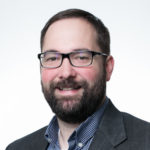One of the things I remember most about my student days is looking forward to graduation day. I couldn’t wait to finish up those last tests and papers. I just knew that finishing school would leave my life with less stress and fewer problems to solve. Surprisingly, years removed from school, my life has even tougher demands. In the same way I worked through countless problems to complete my degree, today I still have many problems to solve. What I have found most surprising in the days after finishing up my education is how many people disagree with me.
The majority of my academic focus was in theology, and within the discipline, there are a wide variety of perspectives and opinions on just about everything. It can be very frustrating and disorienting to hear people you admire and respect disagreeing with each other. What’s the point of trying to understand when there seems to be very intelligent people on every side of every debate?
These days, I often find myself on the teaching side of the educational dialogue. The Lord has provided lots of opportunities to share the things I’ve learned along the way. And I love it. I enjoy these discussions and find that I’m often learning as much as I’m teaching. I’m learning how to communicate clearly, defend my beliefs winsomely and admit when I don’t know the answer. Teaching has taught me not to take myself too seriously and stay humble.
In my early days teaching, I’ve learned my education will only end when my life does. There are always new things to learn and figure out. I’m continuously reading and listening to others. Having students has been the greatest motivation to study I have ever enjoyed. I agree with Howard Hendricks, “I would rather have my students drink from a running stream than a stagnant pool.” There will always be more to learn.
However, you don’t have to be a teacher to be a lifelong learner. We should all labor to grow in knowledge, wisdom and truth. For those who strive to learn well, I offer these three bits of advice:
1. Admit You Could Be Wrong
One of the easiest ways to never learn anything from anyone is being dogmatic. Such people hold their views very tightly and rarely listen to or consider the views of those with whom they disagree. It is wise to pay attention to the arguments of others and seek to understand why they believe what they believe. Most people are much more open to learning if they sense that they are being heard, understood and respected. Don’t be arrogant; admit you could be wrong.
2. Understand Your Own Biases
Everyone has bias, everyone. Whatever our opinions, they are likely somewhat influenced by our parents, teachers, friends, books, pastors, etc. Biases start forming right after birth, and most have no idea where exactly they’ve come from. The trouble is that our biases – like our beliefs – can be right or wrong. If we don’t acknowledge or own biases and their sources, we will struggle to overcome them when and if we need to. There are times to recognize we are biased to believe certain things and take an honest look at whether or not that bias is true.
3. Firmly Root Your Beliefs in Scripture
One of the quips I often hear myself saying in class is, “have a biblical reason for everything you believe.” I realize there are some issues the Bible doesn’t specifically address, but the Bible does give us a wide depiction of God’s heart. I have found when I come to God’s Word prayerfully and humbly, admitting my need for instruction, I’m in a much better frame to learn than if I come with a biased arrogance, convinced the Bible will confirm what I’ve known all along. We must learn to carefully discern what God’s Word says and let it correct us where we need to be corrected.
Only when we humbly recognize our own biases and root our beliefs firmly in the Scriptures can we be confident our views will eventually prove true. The Bible repeatedly warns against the deception of false teachers. Today, perhaps more than ever, Christians must admit their own shortcomings, diligently study God’s Word, and prayerfully ask Him to protect us from error. Some of the smartest people who ever lived have been very wrong about God. Thankfully, we serve a God who will lead us in all truth if we humble ourselves before Him as our great Teacher.
Copyright 2013 Andrew Hess. All Rights Reserved.











